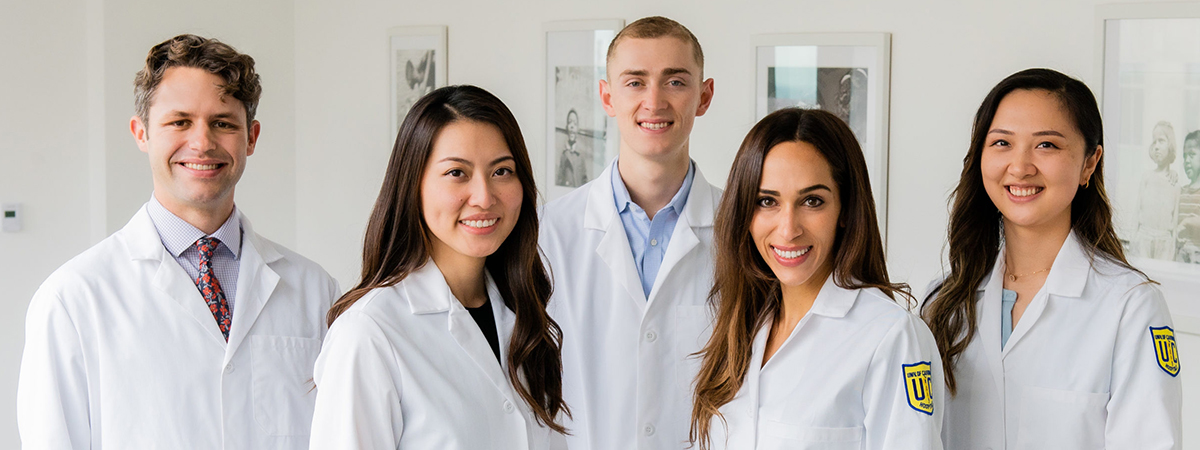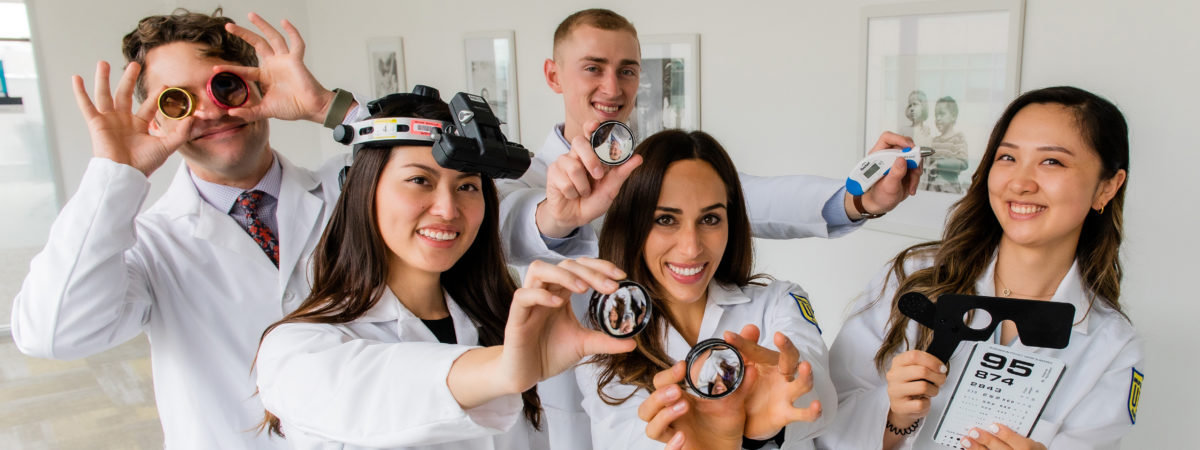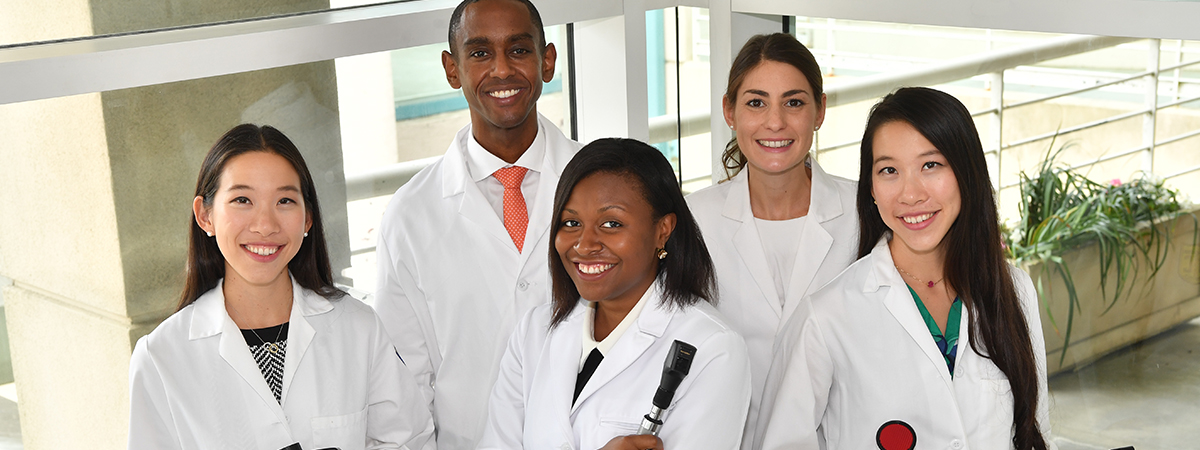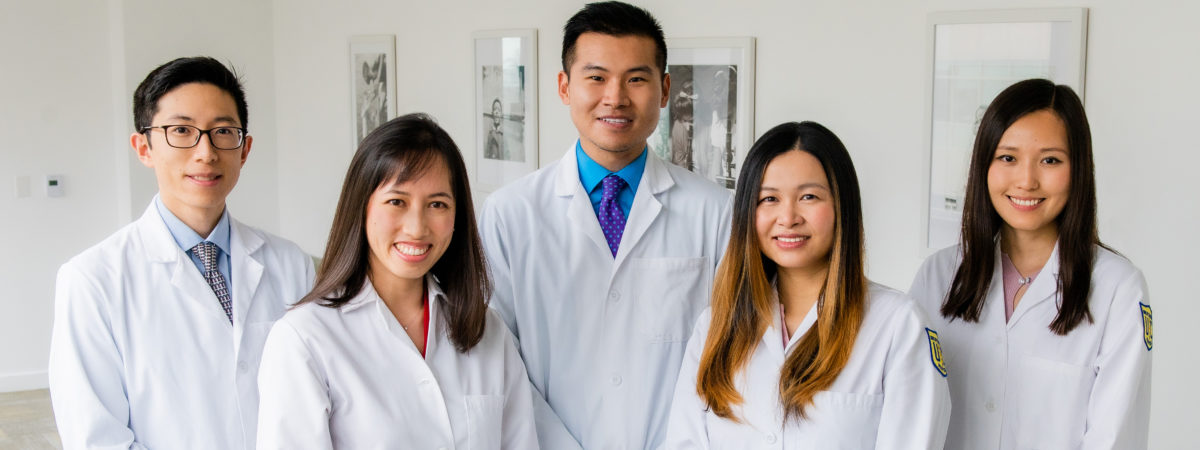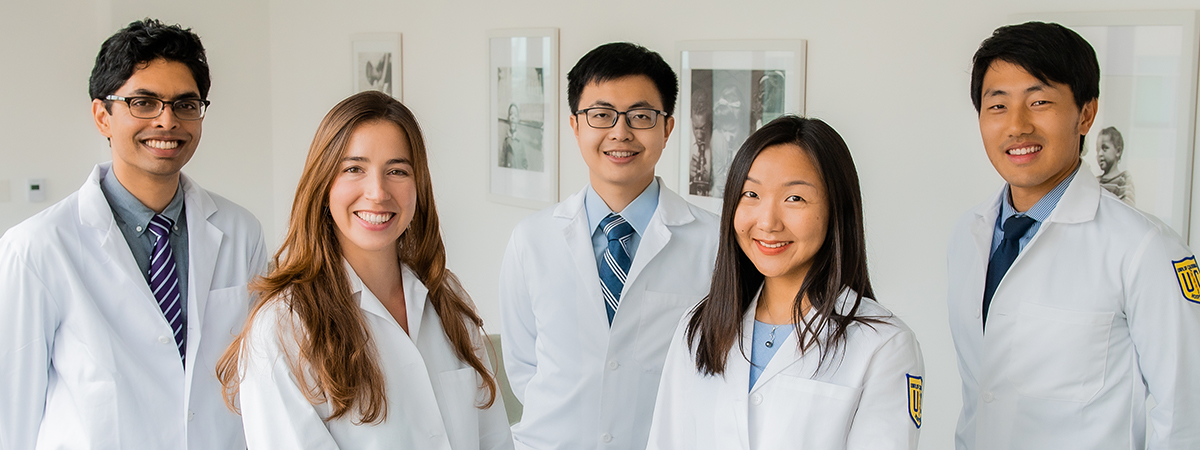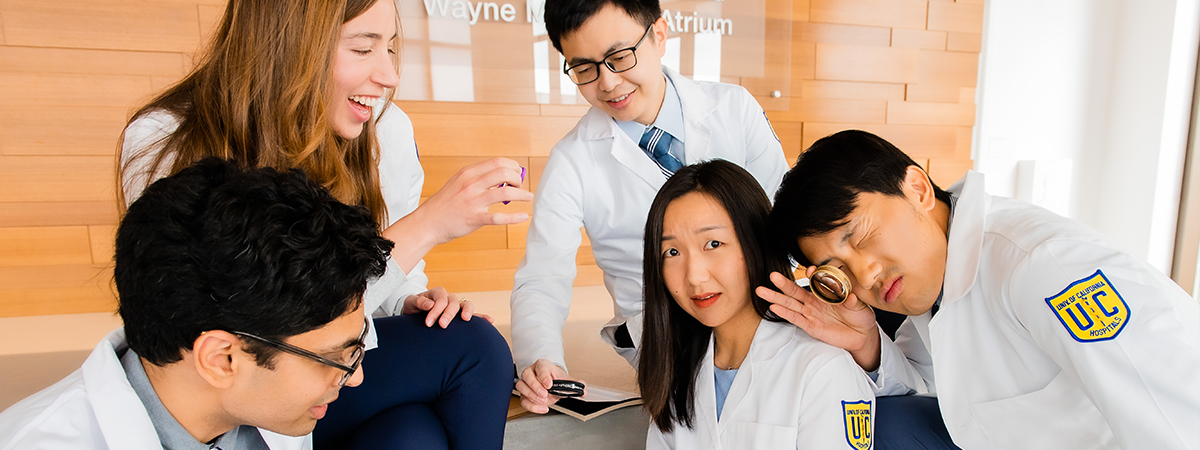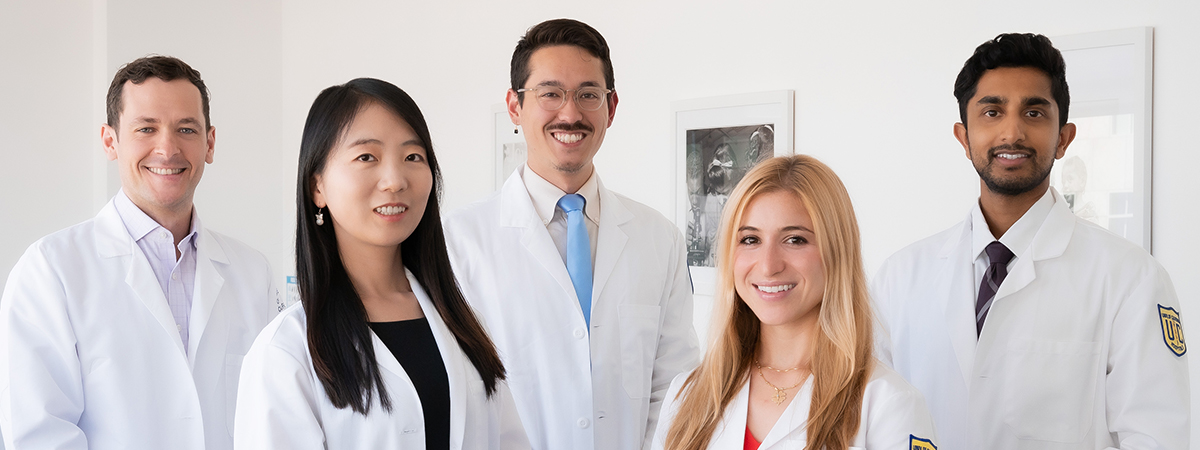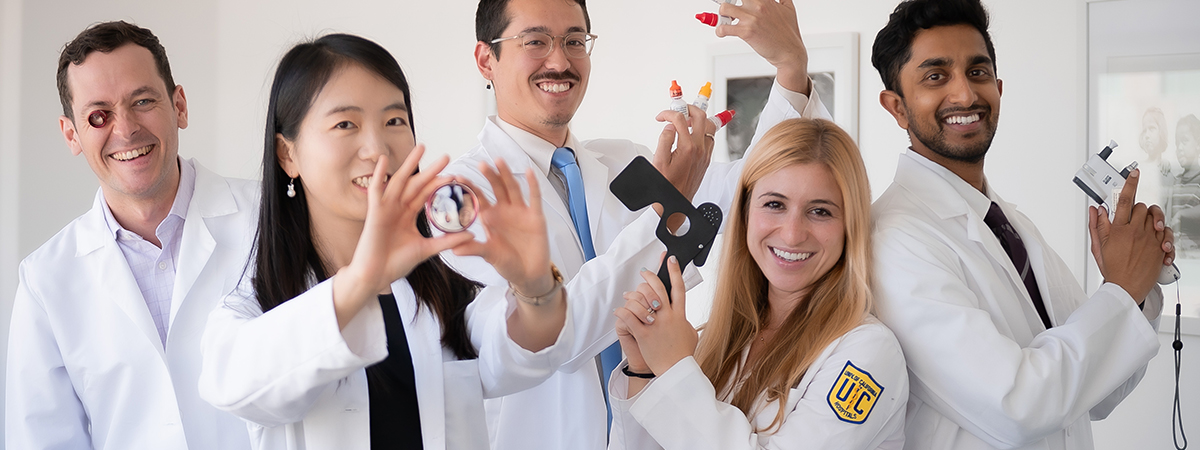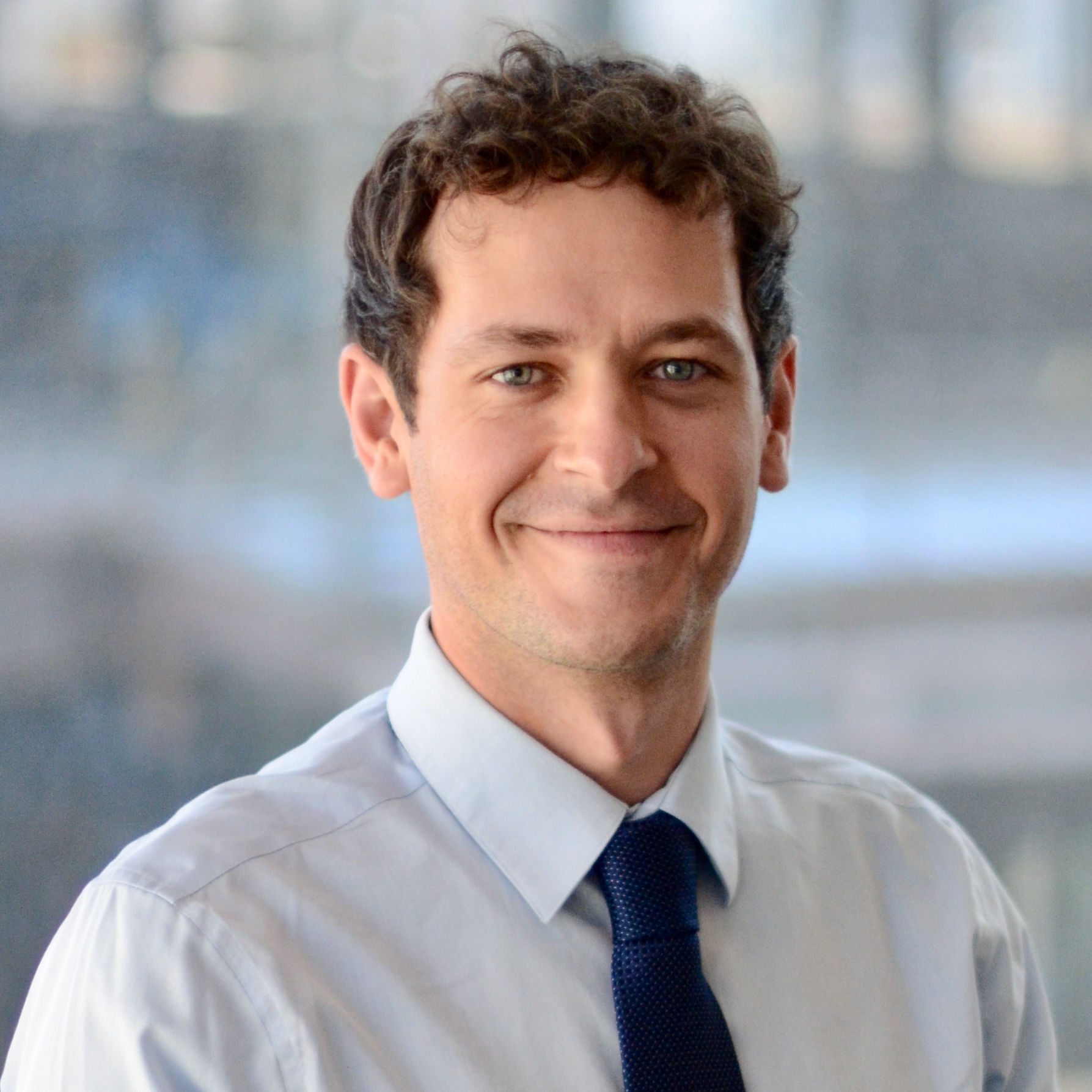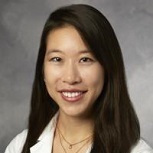Residency Program
Curriculum Overview
Learning – in the classroom, clinic, operating room, or wetlab microsurgical suite – is a foundational part of the Ophthalmology residency at UCSF. Our faculty are committed to teaching in both formal and informal settings. Below, you will find details about some of the structured learning opportunities and curricula built into our program.
” What really drew me to the ophthalmology program at UCSF was its focus on resident education. Clinical and surgical exposure starts intern year, so you are prepared to hit the ground running by the time you reach PGY2. Even as a new intern, attendings who are leaders in the field would make time to staff patients with me and review imaging, examination findings, and clinical decision making. The effort the department puts into the curriculum and resident education shines through when I look at the residents ahead of me.” |
Our residency program has partnered with the UCSF Department of Surgery to offer a joint internship tailored to the needs of our residents. Over the past 8 years, we have used feedback from our trainees to continuously improve our internship. Currently, this internship consists of the following rotations:
- 6 months General Surgery (ENT, OMFS, Plastics, Neurosurgery, Trauma, Cardiac)
- Dermatology
- Neuroradiology
- 3 months of Ophthalmology
- 1 month of elective (done with research mentor)
Our interns participate in ophthalmology didactic sessions during their non-surgery rotations, and also have a dedicated clinical skills and surgical wetlab curriculum that spans 8 months and includes the following sessions:
- Microscope Basics and Introduction to the Eye OR
- Laser lab
- Corneal laceration repair
- Scleral Tunnel creation
- Strabismus basics
- Intravitreal injection
- Introduction to manual small incision cataract surgery
- Introduction to phacoemulsification
The first year of residency at UCSF begins with our unique six-week Summer Session Boot Camp, which is designed to introduce the first year resident to necessary basic education and skills in ophthalmology through a graded clinical and didactic experience. Residents spend half a day in a core didactic course in ophthalmic knowledge each morning followed by afternoons spent in a specially-structured hands-on clinical experience. During this hands-on time, they will either see patients and practice all the components of a comprehensive eye exam, or join our faculty mentors in one of several structured wet-lab curricular sessions.
By the end of the summer session, residents feel fully confident to perform skillful ophthalmic examinations with enough basic information to benefit maximally from their subsequent clinical experiences throughout residency. They are also ready to perform their first mentored intraocular surgeries.
Every Thursday of the year is reserved for faculty-led didactics, conferences, and seminars. A typical Thursday schedule looks like this:
7:30 – 8:30 AM: Morbidity, Mortality, and Microsurgery conference
8:30 – 9:15 AM: Patient case presentations and discussions
9:15 – 10:00 AM: Grand Rounds lecture given by a named lecturer, visiting professor, or faculty member
10:15 – 11:15 AM: Early Career Mentoring Sessions, Journal Club
11:15- 4:30 PM: Subspecialty lectures, Imaging Conferences, and BCSC Didactics
Weekly conferences also occur for the the Francis I. Proctor Foundation, focusing on inflammatory and infectious diseases of the eye.
Additionally, the week before the Ophthalmic Knowledge Assessment Program (OKAP) exam, residents are excused from clinical responsibilities to attend a week-long review course taught by UCSF faculty.
“What really stood out about UCSF was how focused and dedicated the program is in prioritizing residency training. The senior residents I met were all very confident with their surgical skills and knowledge, not surprising given the impressive numbers residents obtain here. More importantly, residents and faculty alike were incredibly friendly; I felt at home with the community and there was definitely no other place with as approachable a Chair and program leadership as UCSF. The integrated internship option is a huge treat as well, enabling me to get a head start practicing my exam skills and bond with my fellow co-residents. And to top it off, UCSF has an unbeatable location!” |
In addition to these weekly lectures, the following courses occur annually:
- July: Orbital Anatomy wetlab course with cadaver dissection
- July: Bay Area Resident Strabismus Surgical Course
- July-Aug: Beginning Ophthalmic Microsurgery wetlab (5 half day sessions)
- October: Oculoplastic and Reconstructive Surgery wetlab
- December: UCSF Continuing Medical Education December Course
- January-June: Intern Wetlab Sessions (1-2 three-hour sessions per month)
- April: UCSF Department of Ophthalmology Resident Research Day
- May: UCSF Department of Ophthalmology Research Day
- June: Intermediate Ophthalmic Microsurgery wetlab (5 half day sessions)
- June: Advanced Ophthalmic Microsurgery wetlab (5 half day sessions)

